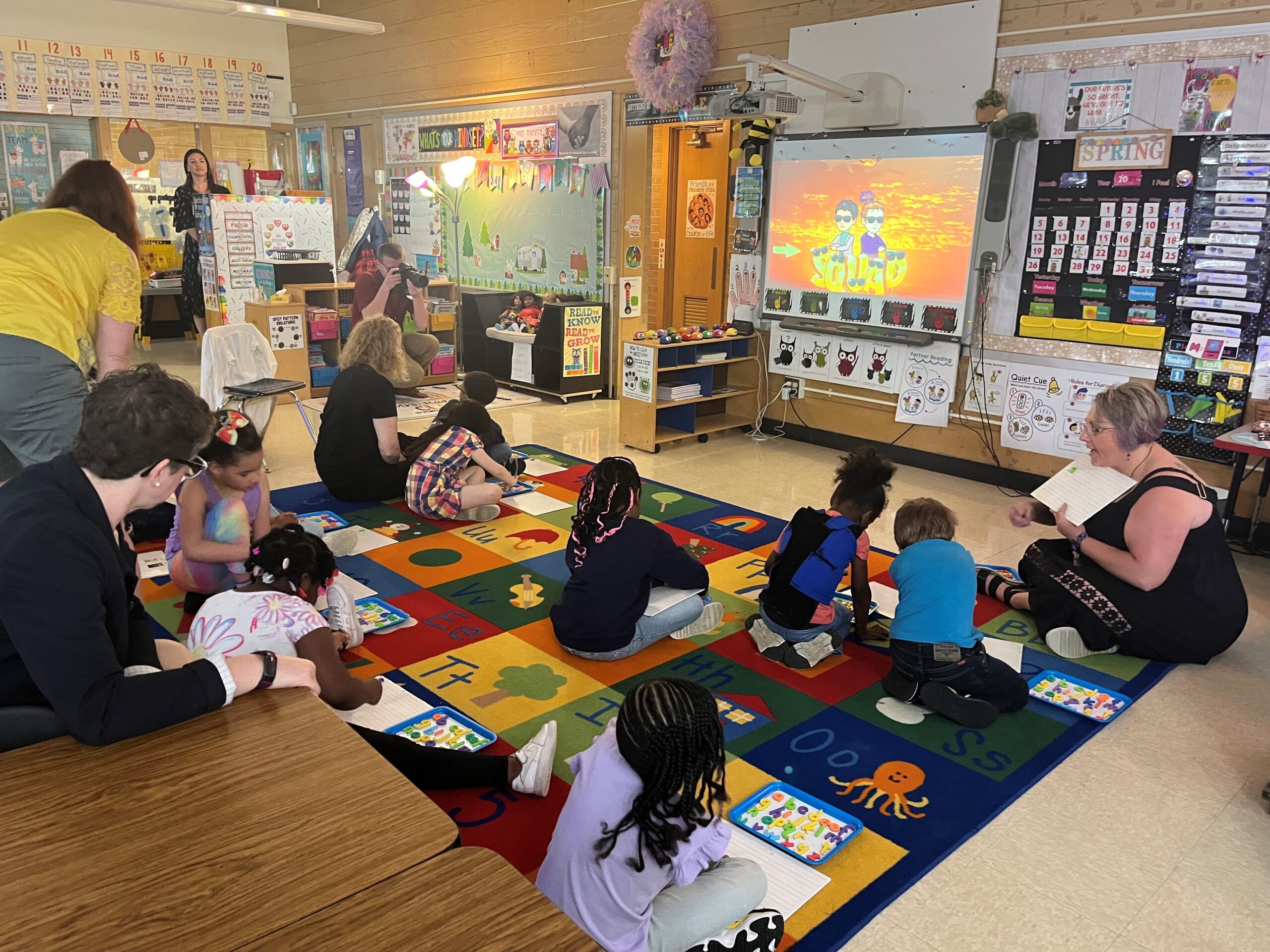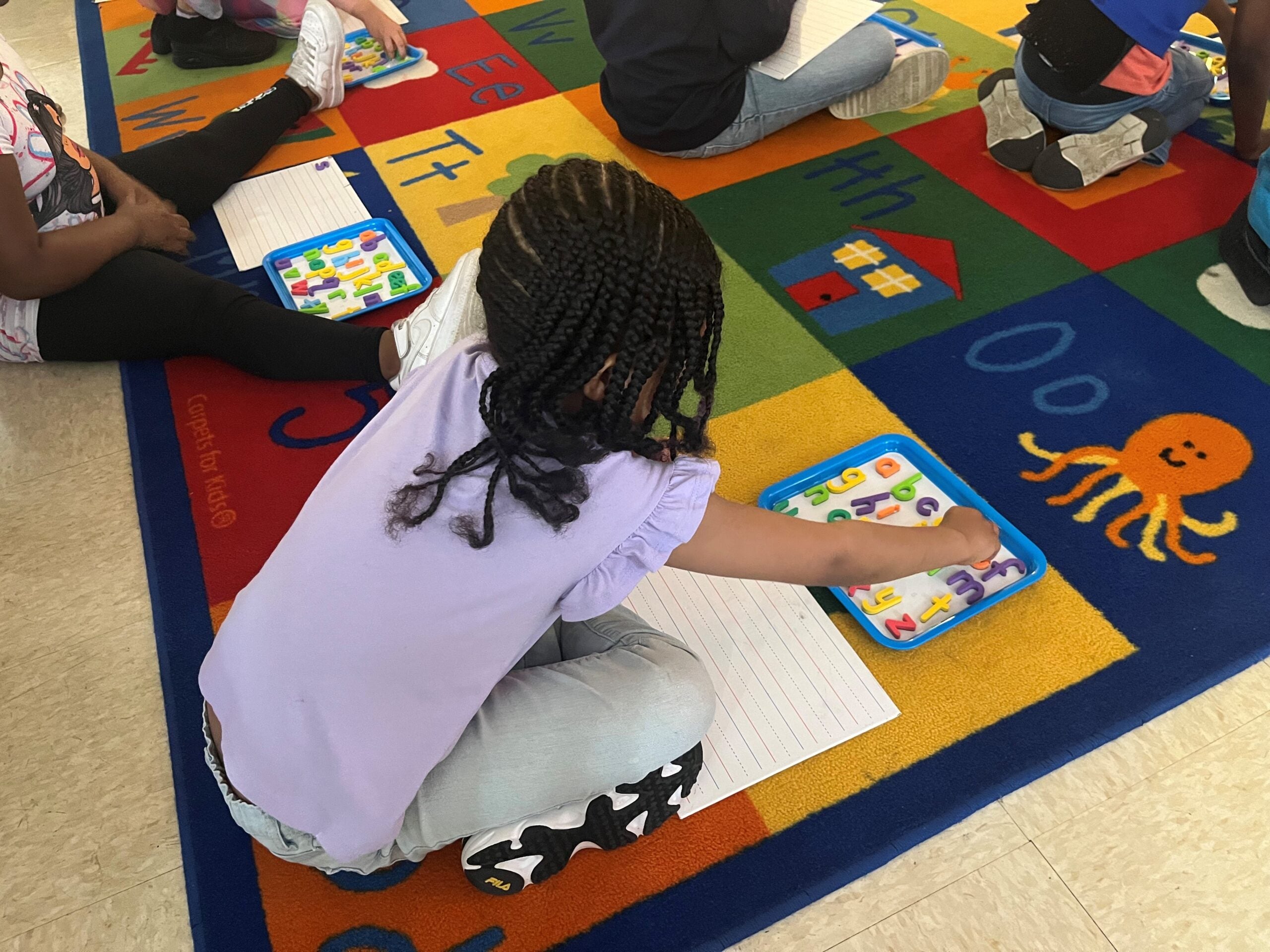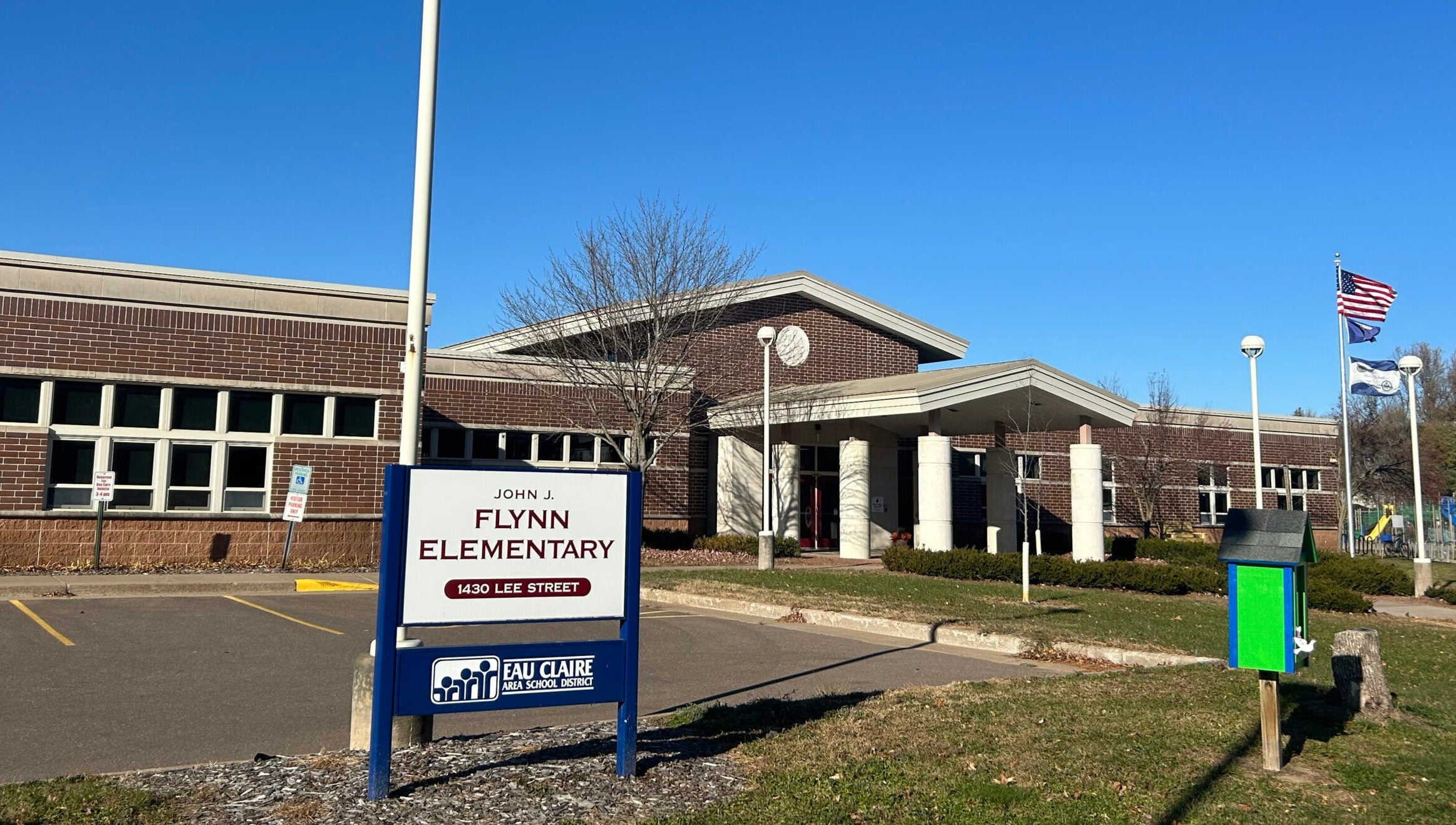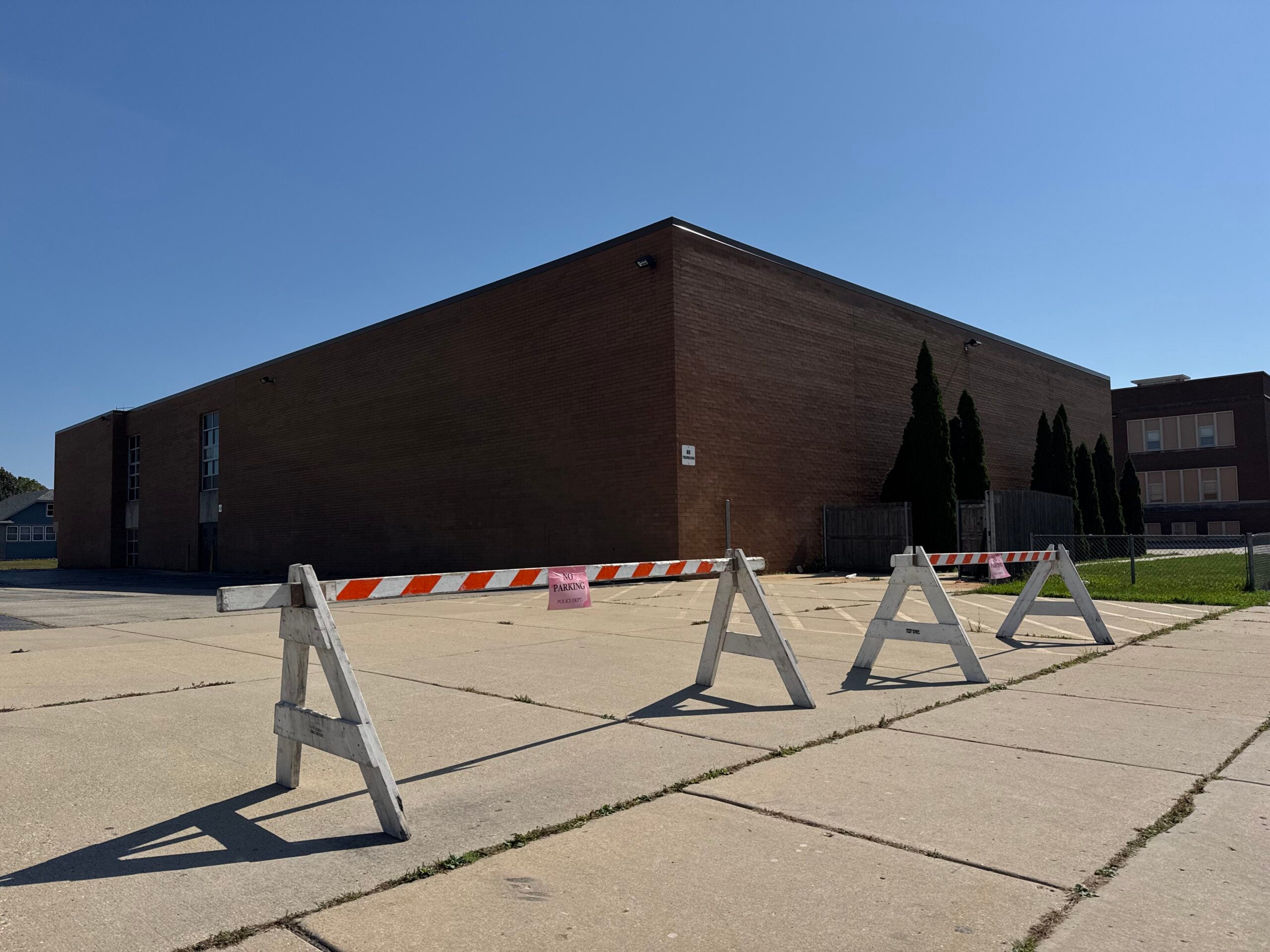A Racine elementary school has changed the way it teaches children how to learn to read.
The results are promising. But their experience illustrates it takes more than just changing the curriculum to improve early literacy.
Since adopting a phonics-based approach in 2019, educators at Wadewitz Elementary School have found they need dedicated coaches, funding and community stability to make the Science of Reading work.
News with a little more humanity
WPR’s “Wisconsin Today” newsletter keeps you connected to the state you love without feeling overwhelmed. No paywall. No agenda. No corporate filter.
The Racine Unified School District is one of about 20 percent of districts across Wisconsin to move to a phonics-based learning system for early childhood reading.
But starting this fall, all Wisconsin schools are expected to move to this model. The change is part of a sweeping literacy law passed last summer called Act 20.
The law was a response to state test scores, which show children are struggling to read. Only 34 percent of third graders were proficient in reading on the most recent Wisconsin Forward Exam.
Wisconsin’s achievement gap between Black and white fourth grade students in reading has often been the worst in the nation.
Janell Decker, chief academic officer for Racine Unified, said the Science of Reading method works, but it takes time. And progress often depends on issues children are dealing with outside the classroom.
“The instruction and the resources is one piece,” Decker said. “We’re also working on mental health. We’re also working on attendance. We’re also working on housing stability and mobility within our district. All of those things have an impact.”

Wadewitz Elementary finds success, then setbacks
About one-third of children at Wadewitz Elementary are special education students. Twenty percent are English language learners. More than 75 percent of the children are economically disadvantaged.
Testing in September 2022 found only 35 percent of second graders at the school were proficient or advanced in reading.
Teachers and reading coaches spent the year working with students on Science of Reading methods. By June 2023, that same group of students were 67 percent proficient or advanced in reading.
The momentum Wadewitz experienced was transformational, said Principal Don Katzer.
“When you see a building like this, you would believe that these kids are going to be in the bottom portion of the test scores,” Katzer said. “But that couldn’t be further from the truth. There isn’t magic in the water here or glitter in the pool. Educators are just embracing the script that has been laid out for them.”
Wadewitz teachers returned in fall 2023 excitedly expecting to find third graders ready to progress on their reading journey.
But they ended up having to start over.
Schools with high poverty levels often have a large percentage students moving in and out each year. At Wadewitz in 2023, more than 40 percent of the second graders from the previous year didn’t come back to school. And of those students who did not return, 86 percent were in the proficient or advanced category for reading.
When third graders were tested in fall 2023, only five students were advanced in reading, said Jenny Pfeffer, an early literacy coach at Wadewitz.
“Students move around, or they get evicted and we start over,” Pfeffer said. “It’s hard, but we have supports in place for those who are struggling.”
‘Another unfunded mandate’
In Racine, the district used a portion of its Elementary and Secondary School Emergency Relief, or ESSER funds, to train kindergarten through fifth grade teachers on the Science of Reading, hire early literacy coaches and to purchase curriculum.
That funding will end in September. Because Racine Unified purchased curriculum approved by the State Department of Public Instruction but not by the Legislature, the district won’t be reimbursed for the purchase.
Decker said she hopes the state Legislature understands school districts need more support than what is outlined in the new law.
“All of the training, the coaches, the tutoring, that all takes people and with our budget deficit and the ESSER dollars going away, unfortunately some of this extra support that has helped us increase our scores at such a rapid rate is going to fall away,” Decker said.
Decker’s feelings are mirrored by educators statewide.
The River Valley School District represents 12 municipalities in Sauk, Iowa, Richland and Dane counties.
District Administrator Loren Glasbrenner said Act 20 includes mandates for professional development for educators, reading readiness screeners, curriculum requirements, literacy coaching, and personalized reading plans for students of need.
Glasbrenner said his district will move forward when necessary, but the funding being allocated to districts is not enough.
“Once again, districts are inheriting another unfunded mandate,” Glasbrenner said.
Back in Racine, State Superintendent Jill Underly was invited to Wadewitz Elementary this week to see how the children are progressing.
After the tour, Underly echoed what Decker said.
“You can’t expect results overnight, it takes time to train individuals, it takes time to implement new curriculum, and then it takes time to see the results,” Underly said. “None of us are going to deny the urgency behind this. But we have to understand that is going to take time and we need the resources to make this happen.”
Wisconsin Public Radio, © Copyright 2025, Board of Regents of the University of Wisconsin System and Wisconsin Educational Communications Board.







